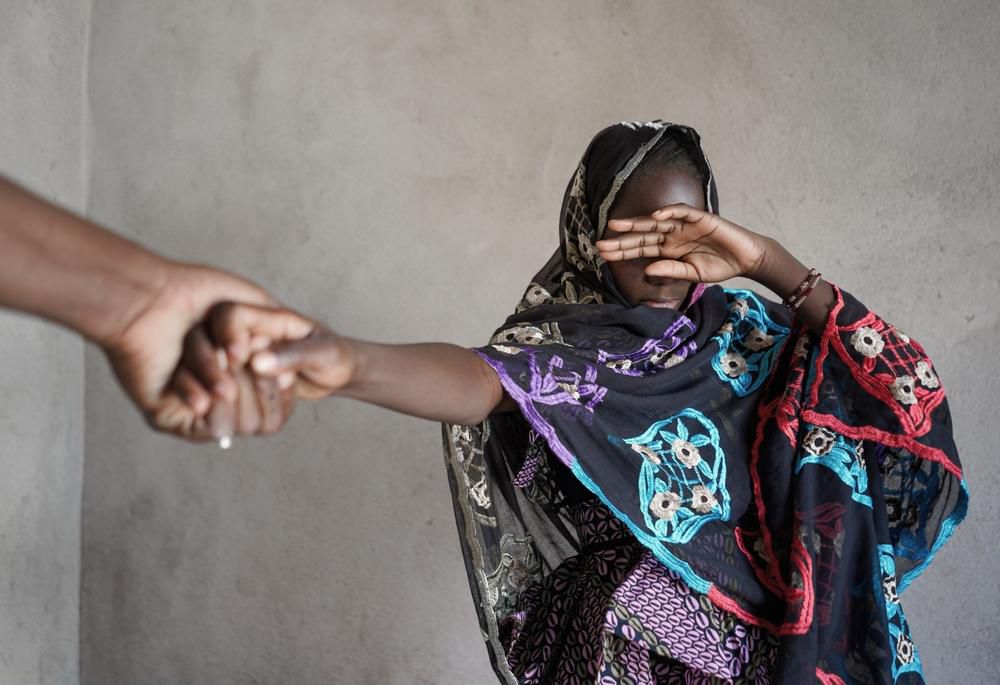Gender inequality remains a significant issue in Nigeria, with women facing discriminatory provisions that violate their rights with the help of Nigerian laws.
This article will examine five of these provisions and explain the consequences of these laws on today’s Nigerian women.
Nuptial Nonsense: How Section 26(2) of the Nigerian Constitution disenfranchises women

Section 26(2) of the Nigerian Constitution states that "any woman who is or has been married to a citizen of Nigeria" can be registered as a citizen of Nigeria, thereby granting automatic citizenship to foreign women who marry Nigerian men. This provision, however, does not extend the same right to foreign men who marry Nigerian women.
This gender-based discrimination has been a subject of criticism and debate, as it denies foreign spouses of Nigerian women the same benefits and privileges as those given to the spouses of Nigerian men.
It is argued that this discrimination discourages foreign investment and marriage into the country, as potential spouses of Nigerian women may be hesitant to marry them due to the lack of citizenship rights.
Marriage or Child's Play? Section 29(4)(b) of the Nigerian Constitution and the legalisation of child marriage

Section 29(4)(b) of the Nigerian Constitution gives room for the marriage of girls under the age of 18 by prescribing that any married woman "shall be deemed to be of full age".
This provision effectively permits child marriage in Nigeria, which is a harmful practice that violates the rights of girls and perpetuates gender inequality.
Child marriage is prevalent in some parts of Nigeria, particularly in the northern region, and is often driven by poverty, cultural practices, and religious beliefs.
Child marriage has significant negative consequences for the physical and mental health of girls, as well as their education and future opportunities. Child brides are more likely to experience domestic violence, maternal mortality, and health complications related to early childbirth. They are also more likely to drop out of school and experience limited economic opportunities, which perpetuates the cycle of poverty.
Domestic Violence and Patriarchal Perpetuation: Unpacking Section 55 of the Penal Code in Northern (Muslim) states
![Victims of domestic violence and shame [Credit: Videoblocks]](https://image.api.sportal365.com/process/smp-images-production/pulse.ng/26072024/3e43d823-d13a-4a38-af58-22bbb1c4fd28)
The inclusion of Section 55 in the Penal Code of the Northern (Muslim) states allows for the correction of a wife by her husband as long as it does not result in grievous hurt. This provision is highly problematic as it not only condones but also encourages domestic violence against women.
By granting husbands the authority to "correct" their wives, the Penal Code reinforces the traditional patriarchal belief that a woman is her husband's property, thereby perpetuating gender inequality.
The notion that a wife can be corrected by her husband also violates women's rights, denying them the right to autonomy and protection from physical harm. It is unacceptable that a woman's well-being and safety depend on her husband's interpretation of correction, which can often be extreme and abusive.
Moreover, the fact that such correction is recognised as lawful under native law or custom further highlights the systemic discrimination against women in the legal system.
Midnight Misogyny: How Section 55 of the Labour Act puts women in the dark

Section 55 of the Labour Act prohibits Nigerian women from being employed in night work, except for certain limited roles such as nurses or non-manual labour management positions.
This provision disproportionately affects women who may seek employment in industries that operate during nighttime, such as manufacturing, transportation, or hospitality. By denying women the opportunity to work in such positions, the provision reinforces traditional gender roles and restricts their economic opportunities.
Moreover, women forced to work in jobs with limited or no night shift options may face challenges in balancing their work and family responsibilities, which can further exacerbate the gender wage gap and economic inequality.
Pregnancy Penalty: How Section 127 of the Police Act discriminates against unmarried policewomen

Section 127 of the Police Act has been a source of gender-based discrimination against unmarried pregnant policewomen. This section mandates that any policewoman who becomes pregnant while unmarried should be discharged from the force.
This discriminatory policy not only affects the job security of these women but also undermines their rights and dignity. The provision also implies that women are not allowed to make choices about their reproductive health and can face punitive action for exercising their rights.
The reinstatement process is also not straightforward, as it requires the approval of the Inspector General of Police, creating a barrier that can further perpetuate gender-based discrimination in the police force.
Pulse Takeout: These provisions have serious consequences for Nigerian women's physical and mental health, education, job security, and economic opportunities. It is essential to address these discriminatory laws and promote gender equality to build a fairer and more just society.
)
)
)
)
)
)
)
)
)

)
)
)
)
)
)